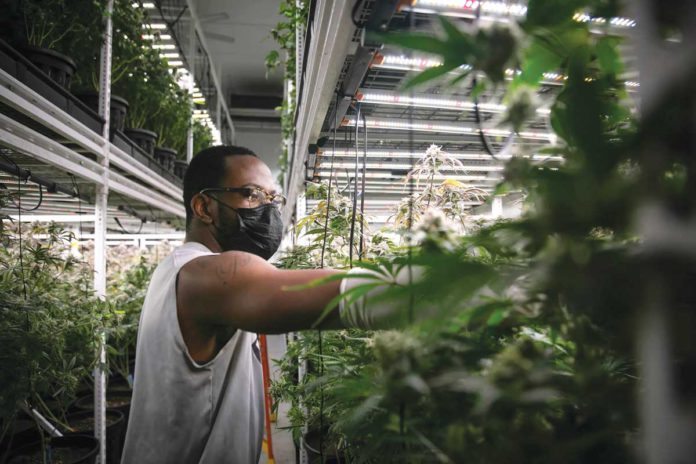Legalizing recreational cannabis in California was supposed to bring illegal growers out of the shadows and into a robust, safe and regulated market. When voters approved Proposition 64 in 2016, the measure promised to end the damage to our lands and water that had long been part of the illegal marijuana industry.
Instead, while some of the small growers who characterized the illegal business have been licensed, the new market has quickly become dominated by a handful of huge corporate farmers. Hoping to save the small growers from extinction, the California Legislature is considering rolling back some of the very environmental guardrails that were supposed to make the legal industry more sustainable.
This is a big mistake. While the intent of proposals like Senate Bill 508 may be laudable, removing environmental safeguards would set a bad precedent, and it won’t save the beleaguered growers who are struggling to survive in the new market.
In fact, it will probably hasten their demise.
The state’s environmental regulations are not to blame for the struggles of small farmers. County permitting decisions, the local political climate in places where there is opposition to the industry and the inability of law enforcement to completely eradicate illicit cultivation have been much bigger hurdles.
But the largest obstacle has been simple economics.
Cannabis prices have fallen rapidly since the product became legal, and that shouldn’t be a surprise. Prior to legalization, about 80% of the cost of producing weed came from trying to avoid law enforcement, according to a RAND Corporation report. With that huge cost of production gone, larger growers entered the market and were able to use technology and other efficiencies to lower their costs.
The result is a glut of supply that has driven down the price, making it nearly impossible for small farmers in the remote forested mountains of Northern California, who once dominated the industry, to compete.
Changing the environmental rules wouldn’t change this economic reality. Instead, it would punish the small growers who navigated the permitting system and are playing by the rules. And it would give still another advantage to the large corporate farmers who have had little trouble creating and expanding their operations.
The state should focus on changes that would actually help small growers. Increasing law enforcement spending against illicit producers for at least five years would send a clear message.
Limiting the size of farms, which would give small growers a chance to compete while they establish their businesses, would also help. This was part of the original intent of Prop. 64, but the state created a loophole that allowed larger farms to be created and dominate the market.
California needs to make it easier for small growers to reach their customers. Large farmers have the resources to build vertically integrated businesses where cultivation, processing and distribution are all under one umbrella, while small growers currently lose much of their revenue to middlemen.
Providing more economic aid, including low-interest loans and grants to small farmers in general—just as we do for other small businesses—would ensure that this integral part of our state ecosystem can compete more effectively with large farmers who have much greater resources.
When voters agreed to legalize marijuana for recreational use, they were told they were helping both small farmers and the environment. The state can and should continue to pursue each of these goals, instead of retreating on both.










More law enforcement would NOT help the legal market.
Free market capitalism is stronger than any government-imposed regulatory solution.
You must make the legal market MORE ATTRACTIVE than the illegal one, that’s the ONLY solution.
Lower taxes and regulation, removal of packaging laws, market-not-government selected points of sale, and total removal of track-and-trace would do a 100x better job of eradicating the black market than any nonsense war-on-drugs approach.